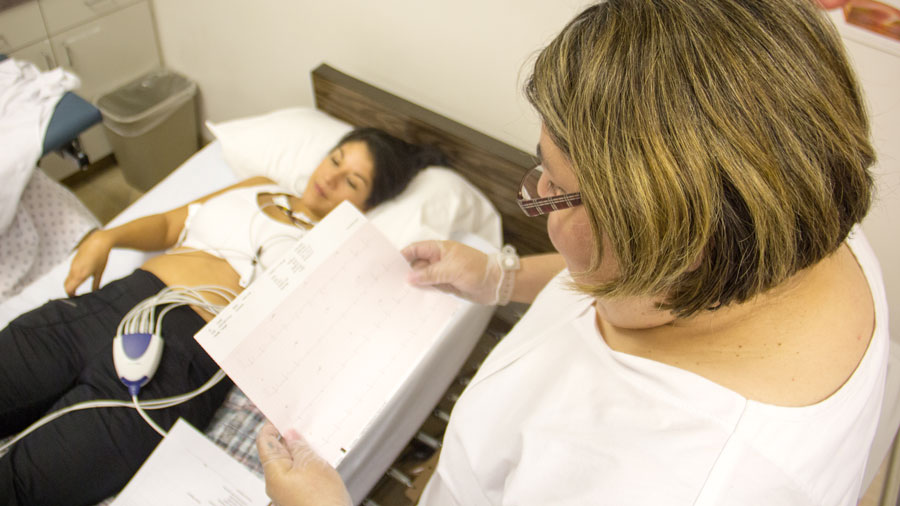
Types of ECG tests available
The initial purpose of an EKG is to monitor how well your heart rate is and is your rhythm. However, it is a different story if it turns out that since the basic physical examination the doctor has suspected your heartbeat rhythm tends to be irregular. Because, your heartbeat rhythm patterns may be more difficult to record, making it difficult for the accurate examination process that you can do at Yishun clinic
Well, Doctor in Yishun will usually recommend other types of ECGs, such as:
1. Stress test
A stress test is an examination to measure how well your heart responds to stress during physical activity. That’s why an ECG stress test requires you to walk on a treadmill or a static bicycle with intensity from the lowest to the highest level.
This test is done to determine the fitness of a person’s heart and lungs, also assess the severity of coronary artery disease that may be contracted.
2. Holter monitor
A Holter monitor is an examination of heart function that is done within 24-48 hours. Interestingly, this ECG test does not require you to continue to be in the examination room. You can still do the examination while undergoing various activities as usual, because your body has been fitted with a small recording device.
The device is attached to a pocket or belt, where the electrode cable will stick directly to your chest.
3. Event recorder
If you experience symptoms of heart disease that don’t appear often, your doctor may recommend using an event recorder or event monitor.
This inspection device is almost similar to a Holter monitor that is also mounted on the body during activities. However, the event recorder will only record the electrical signal activity of the heart at certain times only for a few minutes.
Event recorders also have a longer usage period than a Holter monitor, which can be up to 30 days.
Are there risks that might result from an ECG?
An electrocardiogram is a safe medical examination procedure so you don’t need to worry about the side effects it causes. Electric wires from electrodes mounted on the body only serve to record the activity of electrical signals in the heart, and will not emit a real electric current that can electrocute.
In rare cases, you may experience a reddish rash on the skin when the electrodes are removed as well as when removing bandages from the skin. Sometimes, an ECG stress test can result in an irregular heartbeat, even increasing the risk of a heart attack. However, it should be remembered that this is not caused by the procedure, but rather because of the influence of the sport and the treatment it undergoes.
But you don’t need to worry, ECG stress tests are always carried out under the supervision of experts. While Holter monitors can sometimes cause irritation to the skin if the electrodes attached to the body are not moved every day. All that you can also consult the GP in Yishun